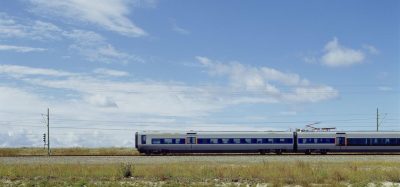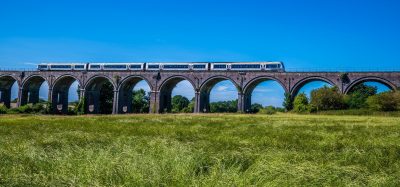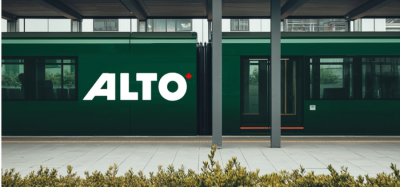The people behind the wheel: Nick Brooks’ story, ALLRAIL
Posted: 21 August 2024 | Nick Brooks - ALLRAIL | No comments yet
For the latest instalment of Global Railway Review’s ‘The people behind the wheel’ series, Nick Brooks, Secretary General of ALLRAIL, shares his insights on the challenges, successes and future innovations in the rail industry, highlighting the importance of liberalisation, innovation and private investment in shaping a sustainable and customer-focused rail sector.
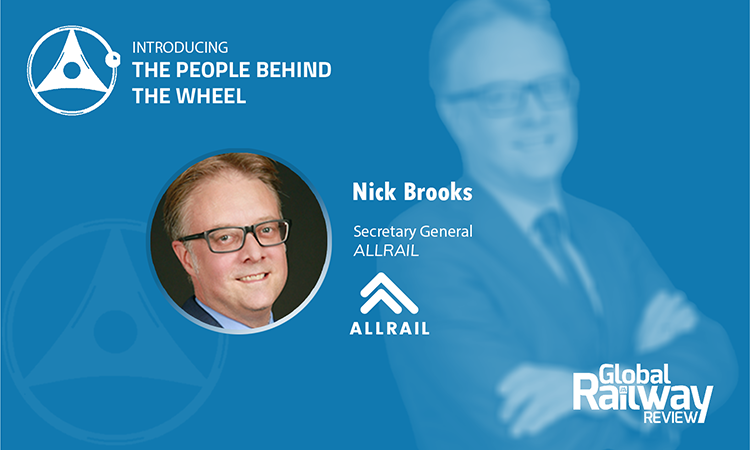

Can you tell us a bit about your role at ALLRAIL?
ALLRAIL is the non-profit association advocating for faster market opening in passenger rail, for the benefit of society, the economy and modal shift to rail.
Our members wanted to be at the table – rather than having traditional actors being the only representatives of the passenger rail sector”
Our members consist of many leading independently owned passenger rail companies from Europe and around the world. In other words: the disruptors, the challengers, the newcomers – the future of passenger railways.
All in all, the role is very diverse, and there is a lot of interest in what we do and what we stand for. Our policies resonate highly, not just in Europe, but elsewhere in the world, and I have had the privilege to visit some other places too.
When ALLRAIL began in 2017, we filled a niche. Previously, there was no recognised lobby for newcomer independent passenger rail companies at the EU level in Brussels. There is an old adage that you are either “At The Table Or On The Table”. Our members wanted to be at the table – rather than having traditional actors being the only representatives of the passenger rail sector.
Not only that, but we have changed the PR narrative. Previously, market liberalisation in passenger rail faced a large number of critics who often paid little attention to facts, resorting to unproven myths in order to stop it from happening.
By contrast, over the past seven years, ALLRAIL has consistently relied on concrete evidence to communicate the many benefits, and I think we have successfully altered the public perception of what market opening can achieve.
As Secretary General of ALLRAIL since 2018, I have the ultimate responsibility for everything that our public affairs association has to do on a daily basis: engagement with stakeholders (from the sector, the national and EU institutions), public communications, public speaking, membership acquisition and more.
What inspired you to seek a career in the transport industry?
When I was younger, I worked on a miniature railway run by teenagers in a park that was very popular during the hot summer holidays. It was not just a pleasure railway, but it actually served two different sides of the park, and – assuming people did not want to walk – they had a genuine reason to use it.
For me, passenger rail was already a big pull long before its environmental benefits became more exposed”
In a basic way, it was a chance to learn all parts of what it takes to operate a railway. Probably, without actually realising it at the time, it inspired me to follow this career path.
Later at university, I studied liberal arts (EU Politics) and languages, which spurred the ambition to work in a more international setting.
After university, I went to work for a leading package tour operator and dabbled initially with rail, but the vast majority of the business consisted of holidays involving flights, to places such as Mallorca and Crete.
So much so that afterwards I even went to work for a ‘pure’ airline, based in the U.S. In that surrounding, I really learned a lot about the competitive element of transport!
Ultimately, my inner homing device brought me to the rail sector – several years before the flight shaming trend (in Swedish: flyskam) began. For me, passenger rail was already a big pull long before its environmental benefits became more exposed.
To conclude, in my role at ALLRAIL I have the opportunity to combine all my passions: politics, globalism and trains.
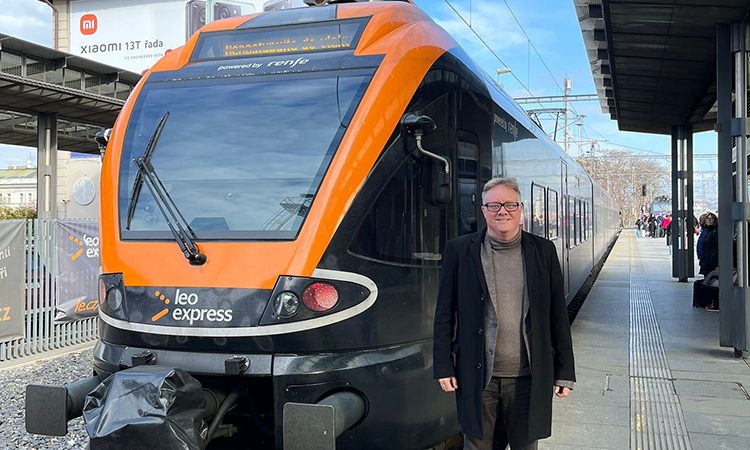

Have you experienced any challenges in your role and, if yes, how have you overcome them?
Let’s be honest: ALLRAIL in its entirety is a challenge. It is probably one of the most difficult public affairs roles in Europe.
Why is that? We are doing public affairs, attempting to grow the passenger rail sector in its entirety, but we face an ocean full of lobbyists from the state-owned rail incumbents who are mostly only interested in maintaining the Status Quo.
ALLRAIL in its entirety is a challenge… We are doing public affairs, attempting to grow the passenger rail sector in its entirety, but we face an ocean full of lobbyists from the state-owned rail incumbents”
Furthermore, national governments are (logically) part of the decision-making process on rail, controlling the vast majority of the purse strings. Therefore, they are a key political stakeholder group that we must talk with. At the same time, they own the state-owned rail incumbents that largely have a political objective that is not welcoming of liberalisation.
In other words, we often have to ‘compete’ with the huge number of lobbyists from state-owned rail incumbents in reaching out to their owners. Clearly, in such a scenario, ALLRAIL is not the favourite to succeed.
And as if that were not difficult enough, state-owned incumbents can benefit from public funds in order to finance their vast in-house lobbying efforts, which aims to keep the status quo. It is a self-serving financial cycle: using proceeds from directly awarded taxpayer-funded transport contracts to lobby for even more directly awarded taxpayer-funded transport contracts; thus, perpetuating the imbalance.
This disparity can be very disheartening. But when all the cards are stacked up against you – also financially – this is when you have a chance to prove your mettle.
However, despite these obstacles, our mission is made easier by our ultimate socio-economic and environmental goal: promoting one of the most sustainable modes of transport while growing the economy and benefiting society. These goals give us the strength to persevere.
Without a doubt, ALLRAIL is in a David versus Goliath scenario, and I welcome the challenge. But it is not for the faint-hearted.
Has a career in rail changed your perception of the industry as a whole?
The industry is great fun, and everyone that I have met, regardless who they work for, genuinely wants the industry to do well. But I fear that it is on a downward trajectory.
Incentives are misaligned and the public administration approach still prevails. This has led to poor outcomes: the market share of passenger rail in the EU is just 7% domestically and 4% for cross-border travel. All the while, Member States are together spending well over €70 billion per year in subsidy.
Rail has no divine right to exist. It must innovate, in order to reduce the addiction to public funds – before such a reduction is carried out forcefully”
In fact, 66% of passenger rail services are subsidised, far more than in any other transport mode. With public funds increasingly under pressure to fund healthcare, education and defence – how much longer can it go on like this? Especially considering that many of those rail services could be operated commercially by independent newcomers, without any help from the taxpayer.
Meanwhile, if aviation and car manufacturers innovate further and become both more sustainable and more accessible (e.g. through the widespread adoption of electric cars), then I worry that politicians will find out that they can achieve better environmental results for the same (or less) taxpayer subsidy with other transport modes instead. Why spend so many taxpayer funds on rail, they will say, when comparatively few travellers use it?
Rail has no divine right to exist. It must innovate, in order to reduce the addiction to public funds – before such a reduction is carried out forcefully.
If anything, my career has confirmed that ALLRAIL is on the right path. We push for faster liberalisation not for the sake of it, but because in those few countries where it has happened so far, we have seen an impressive growth in ridership.
For example, there has been intramodal competition in Italian high-speed rail since 2012, and passenger numbers on the Turin-Salerno line in Italy have quadrupled in recent years – going from around 15 million per year to around 60 million.
The big question is whether this kind of growth will be allowed to happen all over Europe – or its success will remain confined to just a few countries.


How do you see innovation shaping your role and the rail industry in the next five years?
Innovation will only shape my role in a meaningful way if the passenger rail sector finally moves from a public administration approach to a customer-focused service sector.
Innovation will only shape my role in a meaningful way if the passenger rail sector finally moves from a public administration approach to a customer-focused service sector”
Achieving this requires decision-makers at both the national and European levels to set the necessary framework conditions, such as cost transparency and a level playing field for all rail operators, regardless of whether privately or publicly owned. Without thriving intramodal competition, there is no incentive to improve.
In the EU, the Single European Railway Area (SERA) is a promising mechanism, assuming it is fully implemented over the next five years. SERA is part of the EU single market, which underpins common prosperity for a society of 450 million inhabitants, over 100 million more than in the U.S.
Innovation will only succeed if there is interoperability within SERA. For example, there should be one ticketing standard, allowing easy purchase of tickets across internal EU borders, from any station to any station. Additionally, there should be a vibrant rolling stock market – with trains being able to operate seamlessly all across the EU.
These are the measures that will end fragmentation and drive innovation in our sector. Do decision-makers at the EU Member States have the courage to deliver them over the next five years? That remains to be seen.
Suppose you were tasked with solving one of the biggest challenges in the rail industry today using cutting-edge technology. What challenge would you address, and what innovative solution would you propose?
To rival the dominance and convenience of the private individual motor car and to reduce carbon emissions, it is crucial to enable multimodal door-to-door bookings between any two addresses in the EU (including short walking distances), with rail as the backbone of the long-distance part of the journey.
The reason is straightforward: not every address in Europe has a railway station nearby, and not everyone lives or works next to one. Naturally, many travellers must use first-and-last-mile urban public transport during their journey to get to and from railway stations.
Therefore, it is essential that travellers be able to search, combine and book their tickets in a single transaction, at “One Stop Shop” ticket vendors. This means enabling door-to-door bookings that include scheduled public transport (such as light rail, bus, ferry) and long-distance passenger rail, from any address to any address within the EU.
After all, EU citizens pay well over €70 billion a year to subsidise the EU rail system and even more for first-and-last mile urban public transport. Therefore, it is a moral imperative to ensure that sustainable ground public transport is as desirable and accessible as possible.
If the political willpower was there to ensure that the necessary data sharing takes place to make it all happen, it would be phenomenal.
In an ideal world, how do you envision the future of rail evolving?
Currently, it is the road – cars and trucks – and airplanes that stand for modernity and innovation across Europe and around the world.
If we wait solely for taxpayer funds to pay for everything, it will be too late – there is a high risk that these funds will get reduced, delayed or never come at all. Passenger rail will remain small – and that is not the future that I want”
The biggest and most threatening challenge for our society and economy is the climate crisis. Transport is the only sector in which greenhouse gas emissions remain higher than in 1990 in the EU, having increased more than 25%. As one of the cleanest transport modes, passenger rail can play a crucial role in decreasing it again. Hence the urgent need to shift traffic from road and airplane to rail.
This shift will require new lines, faster tracks, modern railway stations, and new interoperable train fleets. In addition, there must be an enormous push toward digitalisation to make rail travel and transport faster, easier and more efficient.
However, this transformation will only happen if passenger rail finally embraces liberalisation. After all, it is the only passenger transport mode that still has market dominant, publicly owned monopolies, unlike others.
With public finances under severe constraint, there must be a stronger involvement of private investment. Especially investors who want medium- to long-term returns and would be willing to invest in rail if only they were allowed to. Today, this is not possible because many EU markets still have direct awards and remain in effect closed until the 2030s at the earliest. Depending on the circumstances, Public-Private Partnerships (PPPs) are also a laudable way to achieve this goal.
Conversely, if we wait solely for taxpayer funds to pay for everything, it will be too late – there is a high risk that these funds will get reduced, delayed or never come at all. Passenger rail will remain small – and that is not the future that I want.


Global Railway Review Autumn/ Winter Issue 2025
Welcome to 2025’s Autumn/ Winter issue of Global Railway Review!
The dynamism of our sector has never been more apparent, driven by technological leaps, evolving societal demands, and an urgent global imperative for sustainable solutions.
>>> Read the issue in full now! <<<
Related topics
Sustainability/Decarbonisation, The People Behind the Wheel, The Workforce



